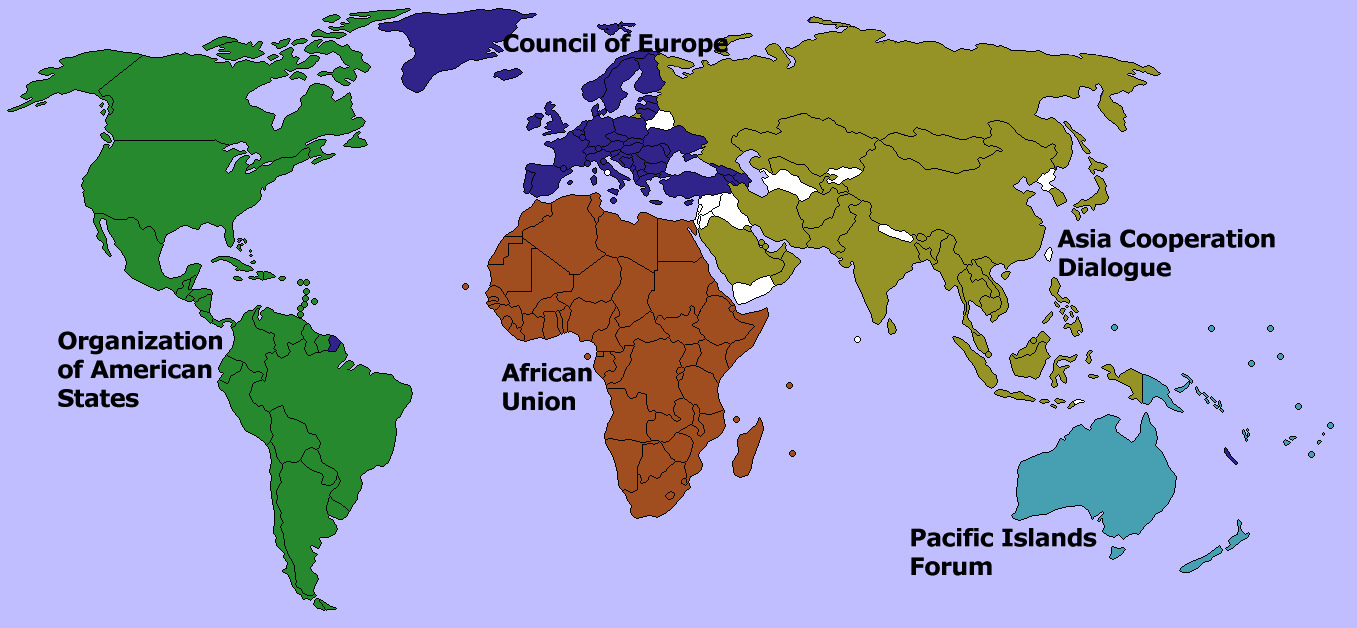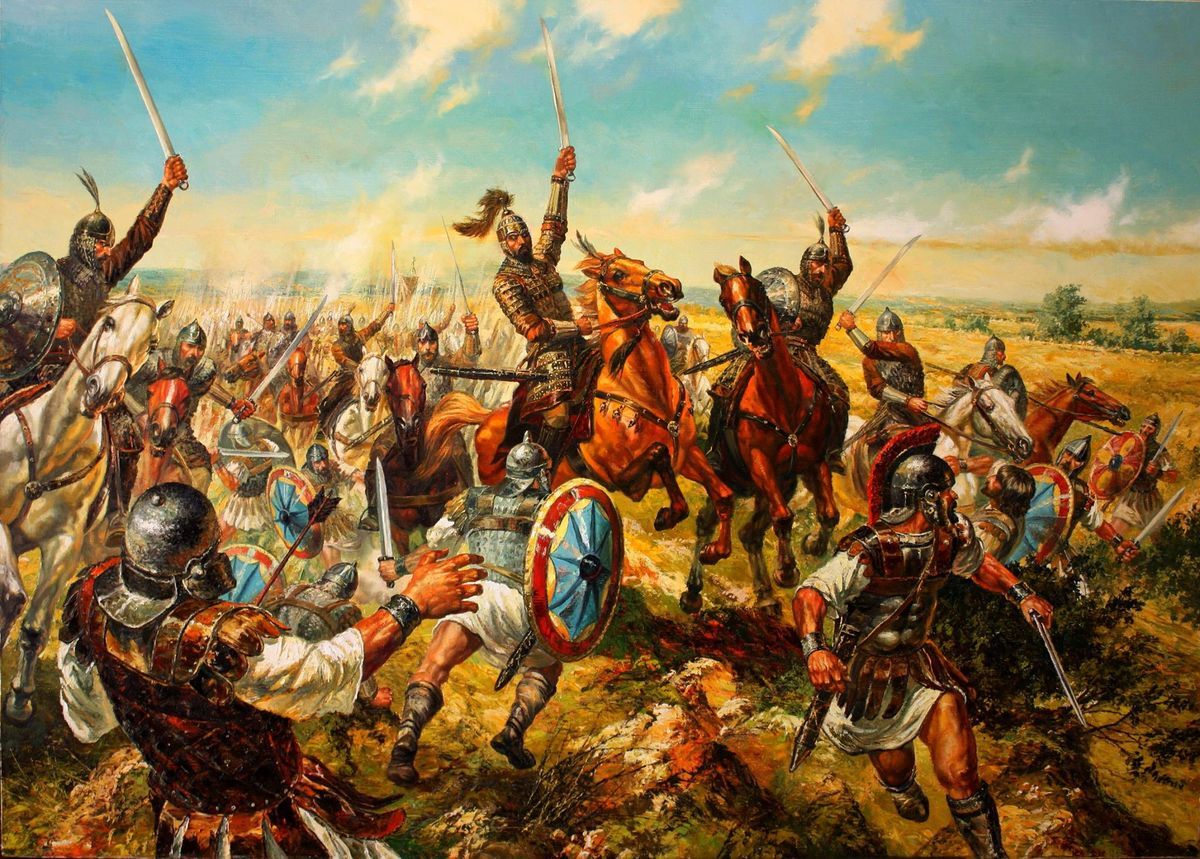
Regional alliances play a crucial role in shaping the political, economic, and social dynamics of our world. These alliances bring together countries or regions with common interests to foster cooperation, address shared challenges, and create a sense of solidarity. From trade blocs to military partnerships, regional alliances have a profound impact on global affairs.
In this article, we will delve into 18 captivating facts about regional alliances. We will explore their formation, objectives, and the benefits they bring to participating countries. Discover how these alliances have shaped regional integration, promoted economic growth, and contributed to peace and stability. As we embark on this journey through the intricacies of regional alliances, prepare to be amazed by the power and influence they wield on the world stage.
Key Takeaways:
- Regional alliances bring countries together to promote economic growth, cultural exchange, and peaceful resolutions to conflicts, fostering a sense of unity and cooperation within a specific geographic area.
- Through regional alliances, countries work together to address common challenges, such as environmental issues and security threats, while also strengthening their diplomatic ties and contributing to global governance.
Regional alliances are cooperative agreements between countries.
Regional alliances are formed when countries in a particular geographic area come together to promote regional integration and address common challenges.
The European Union is one of the most well-known regional alliances.
The European Union, consisting of 27 member states, aims to promote economic and political cooperation among European countries.
Regional alliances can foster economic growth.
By eliminating trade barriers and promoting free trade, regional alliances create a conducive environment for economic development and investment.
NATO is a prominent regional alliance focused on defense.
The North Atlantic Treaty Organization (NATO) is an alliance between North American and European countries for collective defense and security.
Regional alliances encourage cultural exchange.
Through cultural programs and initiatives, regional alliances promote understanding, tolerance, and appreciation for diverse cultures within the region.
ASEAN is a regional alliance in Southeast Asia.
The Association of Southeast Asian Nations (ASEAN) promotes cooperation and regional integration among its ten member states.
Regional alliances can play a crucial role in resolving conflicts.
By providing a platform for dialogue and cooperation, regional alliances facilitate peaceful resolutions to disputes between member states.
The African Union is a regional alliance focused on African integration.
The African Union works towards promoting political stability, economic growth, and social development in Africa.
Regional alliances strengthen diplomatic relations.
Through regular meetings and consultations, member states of regional alliances enhance their diplomatic ties and collaborate on global issues.
The Mercosur is a regional alliance in South America.
The Southern Common Market (Mercosur) aims to promote economic and political integration among its member countries in South America.
Regional alliances can address environmental challenges.
By coordinating efforts and sharing resources, regional alliances contribute to the preservation of the environment and sustainable development.
The Arab League is a regional alliance in the Middle East and North Africa.
The Arab League promotes cooperation and coordination among Arab countries on various political, economic, and social issues.
Regional alliances can enhance security and counterterrorism measures.
Through intelligence sharing and joint military exercises, regional alliances work together to combat terrorism and ensure regional stability.
The Pacific Alliance is a regional alliance in the Americas.
The Pacific Alliance fosters economic integration and trade liberalization among its member countries in Latin America and the Caribbean.
Regional alliances promote regional identity and unity.
By celebrating shared history and cultural heritage, regional alliances strengthen the sense of belonging and solidarity among member states.
The Gulf Cooperation Council is a regional alliance in the Arabian Peninsula.
The Gulf Cooperation Council aims to enhance cooperation and economic integration among its member states in the Gulf region.
Regional alliances can provide assistance during natural disasters.
By pooling resources and coordinating relief efforts, regional alliances support member states in times of humanitarian crises and natural calamities.
Regional alliances contribute to global governance.
Through their collective voice and influence, regional alliances play a significant role in shaping international policies and promoting multilateralism.
Conclusion
Regional alliances play a vital role in geopolitics and international relations. They foster cooperation, stability, and economic growth among member countries. These alliances provide a platform for countries to address common challenges, enhance their collective security, and promote regional integration. From the North Atlantic Treaty Organization (NATO) to the Association of Southeast Asian Nations (ASEAN), there are numerous regional alliances that have shaped the dynamics of global politics.
As we have explored in this article, regional alliances have a rich history and serve a variety of purposes, from military defense to economic cooperation. They can have a significant impact on regional and global affairs, influencing diplomatic relations, trade policies, and even cultural exchanges. Understanding the complexities and nuances of regional alliances helps us to navigate the ever-changing landscape of international politics and fosters greater appreciation for the importance of collaboration and partnership among nations.
FAQs
1. What is a regional alliance?
A regional alliance is a collaborative relationship between countries within a specific geographic area. These alliances are formed to promote cooperation, address common challenges, and enhance regional security and integration.
2. What are the benefits of regional alliances?
Regional alliances provide several benefits, including collective defense, economic cooperation, enhanced diplomatic relations, and greater regional stability. They can also facilitate cultural exchanges and promote a sense of shared identity among member countries.
3. How do regional alliances impact global politics?
Regional alliances can have a significant impact on global politics. They influence diplomatic relations, trade policies, and the balance of power among nations. The decisions and actions of regional alliances can shape the dynamics of international relations and geopolitical landscapes.
4. Which are some notable regional alliances?
There are several notable regional alliances, including NATO (North Atlantic Treaty Organization), the European Union, ASEAN (Association of Southeast Asian Nations), Mercosur (Southern Common Market), and the African Union. These alliances have played crucial roles in shaping regional and global affairs.
5. How are regional alliances formed?
Regional alliances are typically formed through the signing of treaties or agreements. Member countries come together based on shared interests, common goals, or a need for collective security. The legal frameworks and decision-making processes of each regional alliance may vary.
Was this page helpful?
Our commitment to delivering trustworthy and engaging content is at the heart of what we do. Each fact on our site is contributed by real users like you, bringing a wealth of diverse insights and information. To ensure the highest standards of accuracy and reliability, our dedicated editors meticulously review each submission. This process guarantees that the facts we share are not only fascinating but also credible. Trust in our commitment to quality and authenticity as you explore and learn with us.


